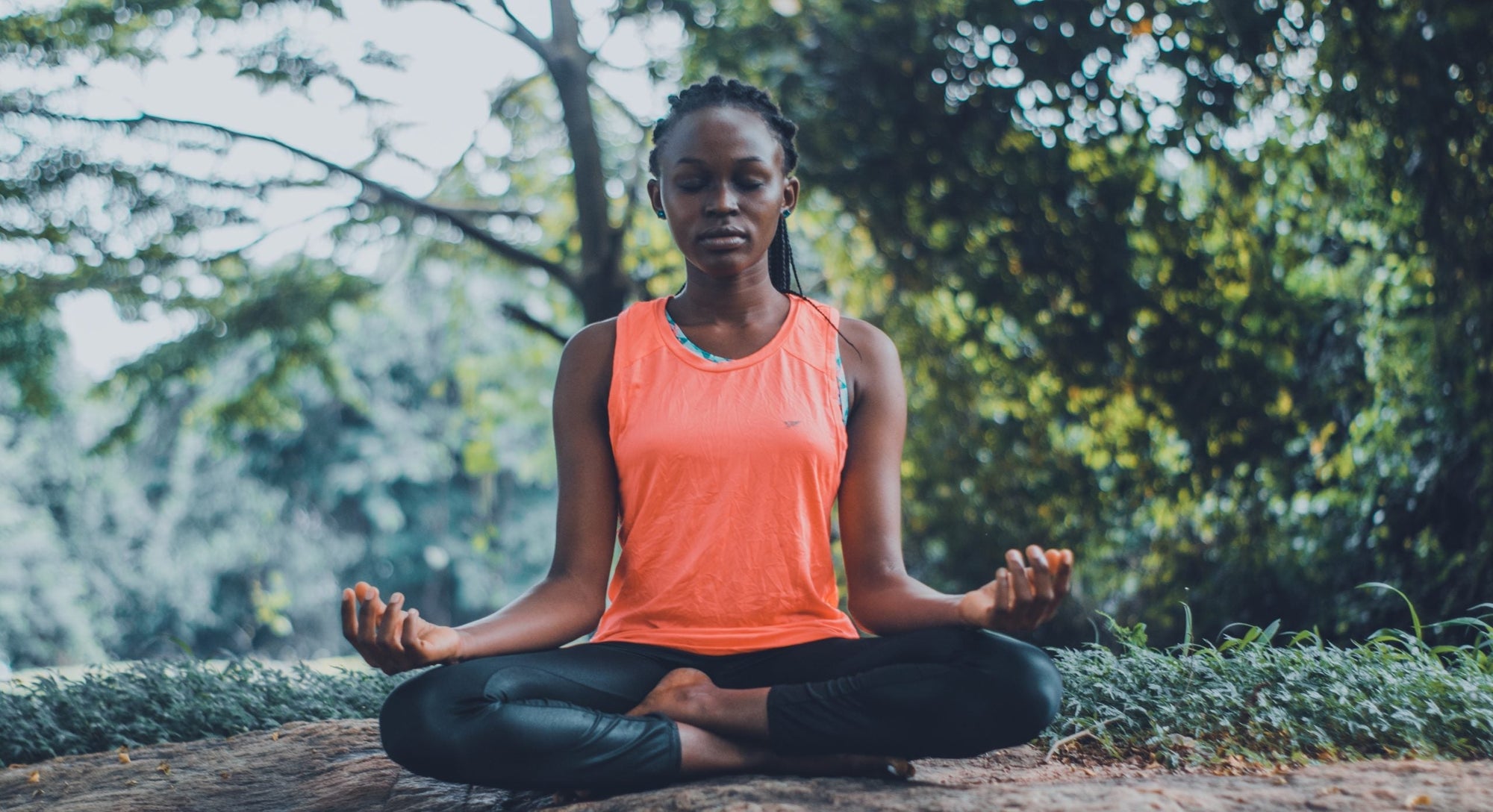When you're feeling anxious, it's hard to focus on anything else. Your mind and heart might be racing, your palms could be sweating, and you could feel an impending sense of doom. To help you manage these symptoms and get back to feeling your best, we've compiled 9 tips for anxiety relief.
Learning about anxiety
Before we discuss some of the tools you can use to manage anxious feelings, let's talk about anxiety itself. First, it's important to understand just how common it is. In fact, one in 13 people around the world (or about 7.3% of the global population) are affected by it.
It's particularly interesting to note the prevalence of clinical anxiety varies from country to country. For example, about 10% of the population of North America, Western Europe, and Australia/New Zealand report symptoms of clinical anxiety. In the Middle East, that number drops to 8%. And in Asia, it's reported as 6%. For more on worldwide statistics and other information about anxiety, take a look at this fact sheet from the Anxiety and Depression Association of America.
While these statistics refer to clinical anxiety, it's important to consider how many of us experience generalized anxiety on a daily basis. Sometimes it's brought on by a cause, perhaps a tight deadline or being stuck in traffic. Other times, it seems to take on a life of its own and shows up out of nowhere.
9 tips for anxiety relief
When you've got these tips in your back pocket, you can help yourself manage the symptoms of anxiety and get back to feeling and functioning at your best.
- Accept your anxiety
One of the most crucial first steps in overcoming anxiety is accepting your feelings about it.
When you accept and recognize these feelings for what they are, you can begin to reframe the way you view your anxiety. Over time, this can change your relationship with your anxiety.
Remind yourself the feeling of anxiety is neither good, nor bad—it simply is.
Next time you start to feel your heart racing, or your stomach turning, take a second to consider your anxious feelings. What are they telling you? Maybe that anxious feeling in your gut is really just your subconscious telling you you’re excited about something.
Instead of telling yourself you’re anxious, reframe your situation to say you’re motivated to attack whatever is making you anxious. You can also use your anxiety as a powerful motivator to help you balance different aspects of your life. For instance, instead of succumbing to crippling feelings of anxiety, use these feelings as fuel to accomplish a task.
Further, pay attention to what brings on your feelings of anxiety. If it’s the same issue reoccurring, maybe it’s your subconscious telling you that you need to reprioritize and rebalance certain aspects of your life. If work is making you consistently anxious, consider speaking to your boss about what can be done.
As long as you're aware of and accepting of your anxiety, you can begin to manage the symptoms you're experiencing.
2. Ground yourself
If you find yourself in the midst of an anxious episode—a high heart rate and quick breathing—consider this technique for grounding yourself in the present moment, known as The Five Senses Method:
Focus on finding five things that fall under each of your senses—sight, smell, hearing, touch, and taste. Five things each that you can see, smell, hear, touch, and taste. By focusing on the present, your body is freed up from stressing about the anxious feelings.
The purpose for grounding is to allow an anxious individual to step away from their anxious thoughts. Instead, they can focus on the present moment and often experience instant anxiety relief.
3. Become aware of and in control of the moment
Connected closely to the first two tips, awareness and control are important in overcoming anxiety.
When feelings of anxiety come along, it's easy for your brain to trick you into thinking something worse is happening.
Next time you’re feeling anxious and your heart begins to race, try this: Take a second to pay attention to the present moment. Remind yourself this is just a passing emotion, and feelings of anxiety will fade in time.
4. Evaluate your thoughts
It's also important to question and evaluate your thoughts to help you find anxiety relief. When you're anxious, your brain goes into overdrive. It presents you with all sorts of thoughts that can continue to fuel your anxiety.
Remember to question your thoughts and evaluate them with a logical frame of mind. In the middle of an anxious episode, it's common for your brain to tell you that “everything” is going wrong or catastrophe is looming . When your brain presents you with these thoughts, question them! Don’t accept these lies and worsen the situation.
It’s always beneficial to remain in control of the moment by questioning the often-outlandish and anxiety-inducing thoughts that pop into your brain.
5. Pay attention to your breathing
There are many breathing techniques out there meant to help with anxiety. After all, breathing in deeply is connected to the sympathetic nervous system. This system is what controls the fight-or-flight response. Exhaling (breathing out) is connected to the parasympathetic nervous system, or what influences our body to relax.
If you’re feeling anxious, one of the easiest techniques to try to elevate some of the symptoms is to lengthen your exhale, which encourages your body naturally to relax.
If you have trouble relaxing, grab your headphones and listen to your favorite song. The Xen by Neuvana Headphones are a great way to calm your mind to let you focus on breathing.
While you take nice deep breaths, the headphones also stimulate your vagus nerve. This can send messages to the brain creating calming sensations throughout your body and easing your mind.
Want to learn more about the vagus nerve and why it's often considered the key to well-being? We cover all that and more in this post.
Another technique is to simply be mindful of your breathing. Evaluate your body as you breathe in. What are you feeling? Tension? Relaxation? Becoming aware of what your body is experiencing is crucial to reducing anxiety symptoms.
6. Use relaxation aids
In addition to Xen by Neuvana technology, there are plenty of aids out there to help support and encourage relaxation and provide anxiety relief. One of the most popular is lavender oil.
Lavender oil has many healing properties and promotes a calming feeling, as well as more restful sleep. Rubbing lavender oil on your skin, or putting some in an oil diffuser is a great start to encouraging relaxation.
7. Do something for your body
Exercising is one of the fastest ways to produce endorphins, or chemicals that act as painkillers in the brain. Plus, it’s an added bonus that you’ll feel accomplished afterward! Studies show that regular exercise can play a role in reducing anxiety and depression symptoms in individuals.
For those who need a push to workout, listening to music during or after a workout can help make it fun. This helps boost your mood and reduces feelings of stress or anxiety. Pairing your post-workout cooldown with the Xen headphones and your favorite playlist can help you recover faster from the workout by combining vagus nerve stimulation with your music for added stress relieving benefits. .
8. Do something for your mind
By doing something for your mind, you are encouraging feelings other than stress, panic, and anxiety to be felt.
During an anxiety attack, try to refocus your attention onto doing something meaningful. An activity to accomplish can distract your mind while also giving you something to focus on.
Here are some ideas to get you started:
- Puzzles
- Coloring
- Writing
- Reading
- Painting
These activities will help your mind shift to something more positive.
9. Do something for your heart
When you're suffering from anxiety, consider focusing on something that makes your heart happy. A great example is spending time with animals or consider adopting a pet. Studies have shown that time with animals has a significant impact on reducing anxiety symptoms. In fact, 74% of pet owners reported improved mental health from pet ownership!
Finding tools for anxiety relief that work for you
As you navigate through anxious episodes, you'll find certain techniques are more effective than others. What gives one person anxiety relief might not work for the next person. But don't give up! There are so many tools and techniques for anxiety relief that can help you calm your mind and feel your best.
If you're looking for a unique and effective way to experience the many benefits of VNS, we encourage you to give the Xen by Neuvana Headphones a try. It’s well accepted that stress, including anxiety, has negative health effects on the body. Research suggests the type of stimulation Xen provides may improve sleep, reduce stress, boost your mood, provide anxiety relief, and enhance focus to support overall wellness. Individual results may vary.
Learn more about this revolutionary product here.





